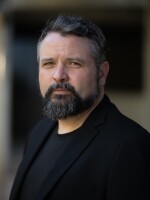Going by the brand names of K-2, Spice, and Bliss, synthetic marijuana is far more serious than its whimsical names give it credit for. Even calling it marijuana gives the chemically driven powerhouse an undeserved benign impression.
The highs are higher and last exponentially longer. The effects of an overdose of marijuana are far less harmful than that of its synthetic counterpart, which doctors liken to amphetamines. An overdoes of the latter has resulted in hospitalizations, has been linked to permanent kidney damageand--in some cases--death.
State legislatures across the country have banned synthetic marijuana, with Texas doing so in 2011, so why are we still able to readily find them in stores?
The first thing to understand is that synthetic marijuana or cannabinoids are complex chemical compounds derived from cannabis, and were never intended to be ingested by humans recreationally even by the man who first synthesized cannaboid compounds to aid medical research.
John W. Huffman PhD, a professor of organic chemistry at Clemson University and the man behind synthesized compound cannabinoids, went on to develop 450 variants with his team and some of these found their way into the underground market for illegal drugs.
The second thing about these compound cannabinoids, is that because they are so complex, the chemical makeup can be altered resulting in the same powerful and dangerous highs, allowing them to skirt laws that have banned particular chemical makeups.
Many people are advocating for stricter bans on the chemical compounds, including at the municipal level. Dallas, Pearland, Pasadena, Corpus Christi, La Porte and others have all enacted stronger bans. The city of Houston is the most recent to pass a ban.
The city will be able to cite a vendor for $2000 a packet if: they sell any substance as incense with synthetic compounds not associated with incense or vendors indicate it will replicate the effects of marijuana verbally or visually.
Should San Antonio ban synthetic marijuana?
Guests:
- Jennifer Potter, assistant dean for research and student programs at the University of Texas Health Science Center
- Brett Ginsburg associate professor of psychiatry at the University of Texas Health Science Center
- David Feldman, Houston's city attorney



